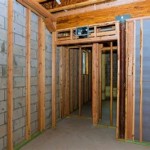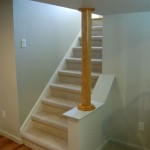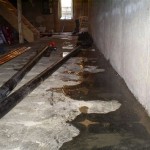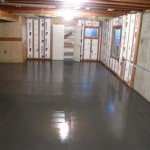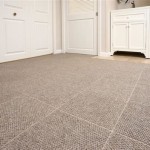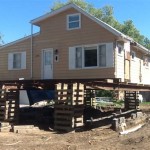How To Prevent Flooding In Basement
A flooded basement can be a disaster. The water can damage your belongings, your home's structure, and even your health. Fortunately, there are several things you can do to prevent basement flooding. Here are a few essential tips:
1. Inspect Your Foundation
Check your foundation for cracks or settling. These can allow water to seep into your basement. If you find any cracks, seal them with a hydraulic cement. You should also check your foundation for any signs of settling. If you see any uneven floors or walls, it's a sign that your foundation is settling and needs to be repaired.
2. Install a Sump Pump
A sump pump is a device that pumps water out of your basement. It's important to have a sump pump if you live in an area that is prone to flooding. Sump pumps can be installed by a professional or you can do it yourself. If you choose to install it yourself, be sure to follow the manufacturer's instructions carefully.
3. Keep Your Gutters Clean
Clogged gutters can cause water to overflow and flood your basement. Be sure to clean your gutters regularly, especially after heavy rains. You can also install gutter guards to help prevent leaves and other debris from clogging your gutters.
4. Slope the Ground Away from Your House
The ground around your house should be sloped away from the foundation. This will help prevent water from pooling around your house and seeping into your basement. If the ground around your house is not sloped away from the foundation, you can add soil or build a retaining wall to create a slope.
5. Seal Your Basement Walls
Water can seep into your basement through the walls. To prevent this, you can seal your basement walls with a waterproofing sealant. Waterproofing sealants are available at most hardware stores. Be sure to follow the manufacturer's instructions carefully when applying the sealant.
6. Install a Backflow Valve
A backflow valve is a device that prevents water from flowing back into your house from the sewer. Backflow valves are required by code in most areas. If you don't have a backflow valve, you should have one installed by a professional plumber.
7. Check Your Water Pressure
High water pressure can cause leaks in your pipes, which can lead to flooding. To check your water pressure, attach a water pressure gauge to your hose bib. The water pressure should be between 40 and 60 psi. If your water pressure is too high, you can have a pressure reducing valve installed by a professional plumber.
By following these tips, you can help prevent basement flooding and protect your home from water damage.
How To Prevent Basement Flooding Complete Strategy

How Sump Pumps Prevent Basement Flooding Md Plumbing

6 Simple Ways To Prevent Basement Flooding American Dry

Stop Basements Flooding Flood Prevention Pumps Alarms Ecohome

Protect Your Home From Basement Flooding Utilities Kingston

The Best Ways To Prevent Basement Flooding Swartz Restoration And Emergency Services

8 Tips For Flood Proofing A Basement

Frontiers Reducing Urban Flood Risk Through Building And Lot Scale Mitigation Approaches Challenges Opportunities

Here S How To Prevent Basement Flooding Reviewed

Protect Your Home From Basement Flooding Utilities Kingston
Related Posts
